6-Bell Competition Results
-
2024
-
2023
ODG Six Bell Competitions – Raising and Lowering and Striking Final, 5 October 2024
Oxford Diocesan Guild’s annual six-bell competitions took place on a glorious sunny day in October at Shottesbrooke and Binfield respectively. The Shottesbrooke park estate in Berkshire, home to the head office of the Landmark Trust, formed a picturesque background to the ringing.
Judging the raising and lowering competition, Robert Newton commented that all bands had done well but the winner, Hook Norton, had achieved a smooth and measured raise and, on the lower, a good transition from double to single clappering and an excellent finish. This was only the second year that the trophy had been awarded and Robert warmly encouraged more bands to enter next year.
Bands from nine of the ODG’s fifteen branches competed in the six-bell striking competition final. Matthew and Debbie Taylor, this year’s judges, noted the exceptionally high standard of ringing on Shottesbrooke’s lovely bells. The most successful bands demonstrated consistent, settled ringing with precise leading and a sense of common purpose. Overall there were very few method mistakes and fewer than ten faults separated the top three bands. The judges’ advice included the importance of a good pull-off; careful attention when moving out of lead and the ‘sparkle’ of a really nice piece of ringing.
In third place, with 33.5 faults, came Hook Norton; High Wycombe were placed second with 32 faults and this year’s winners were Tilehurst with 25 faults.
Listening to the ringing and judges’ comments was made even more enjoyable by a superb lunch and tea provided by the ringers of Sonning Deanery (especial thanks to Jan and Vikki).
Elizabeth Mullett, Steward
Photo credits: Charley Smith, Shottesbrooke
- Presentation of Raising and Lowering Competition Trophy by Guild Master Catherine Lane (winners: Hook Norton)
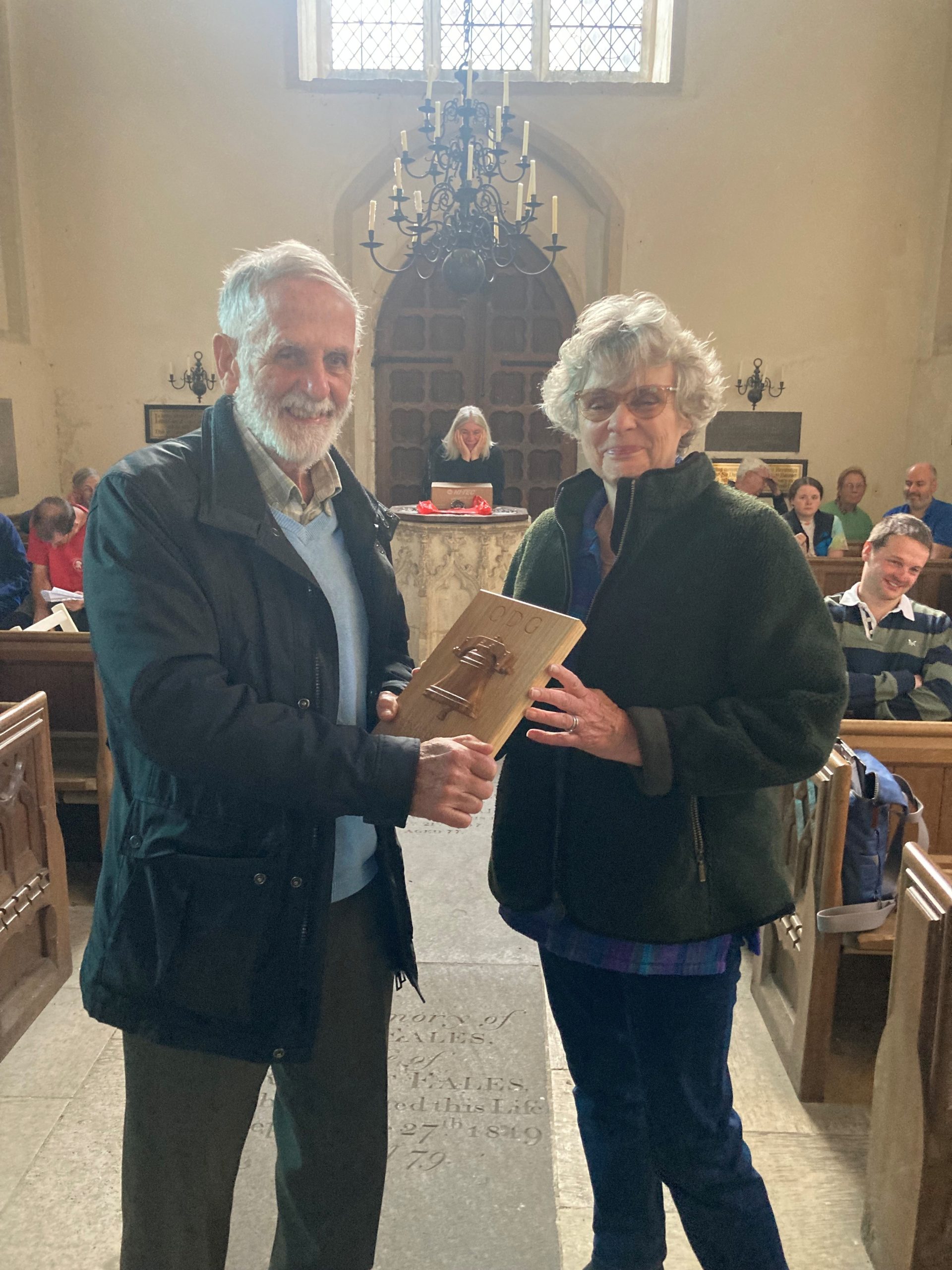
- Judges Matthew and Debbie Taylor present the six bell striking competition trophy to the winners, Tilehurst (conducted by Jo Druce)
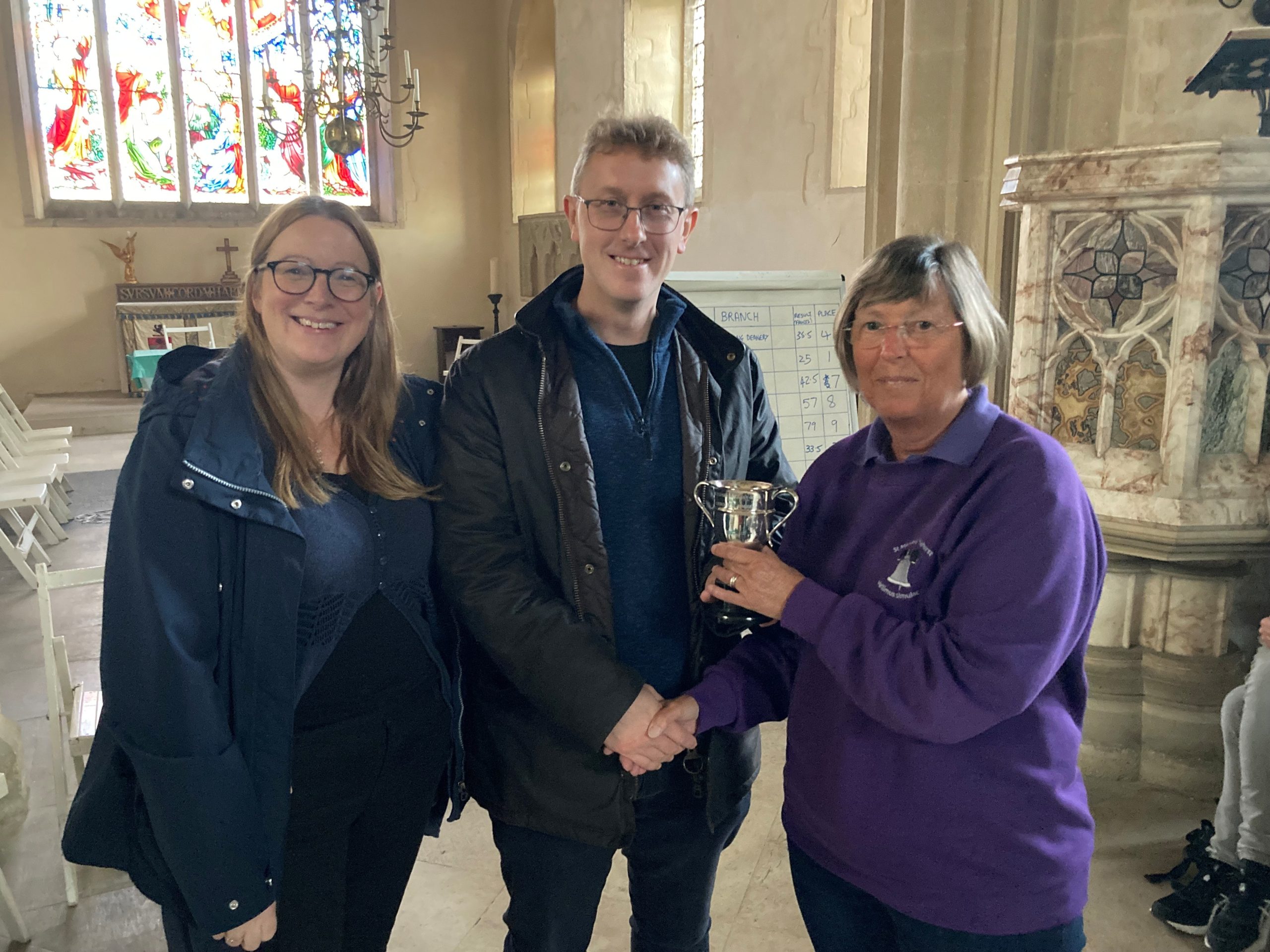
- Six bell striking competition final winners, Tilehurst (L to R, treble to tenor): Joanne P. Druce (C ), Eunice A. Wark, Elizabeth A. Evans, D. Giles Winter, Colin R. Cairns, David R. Bardwell
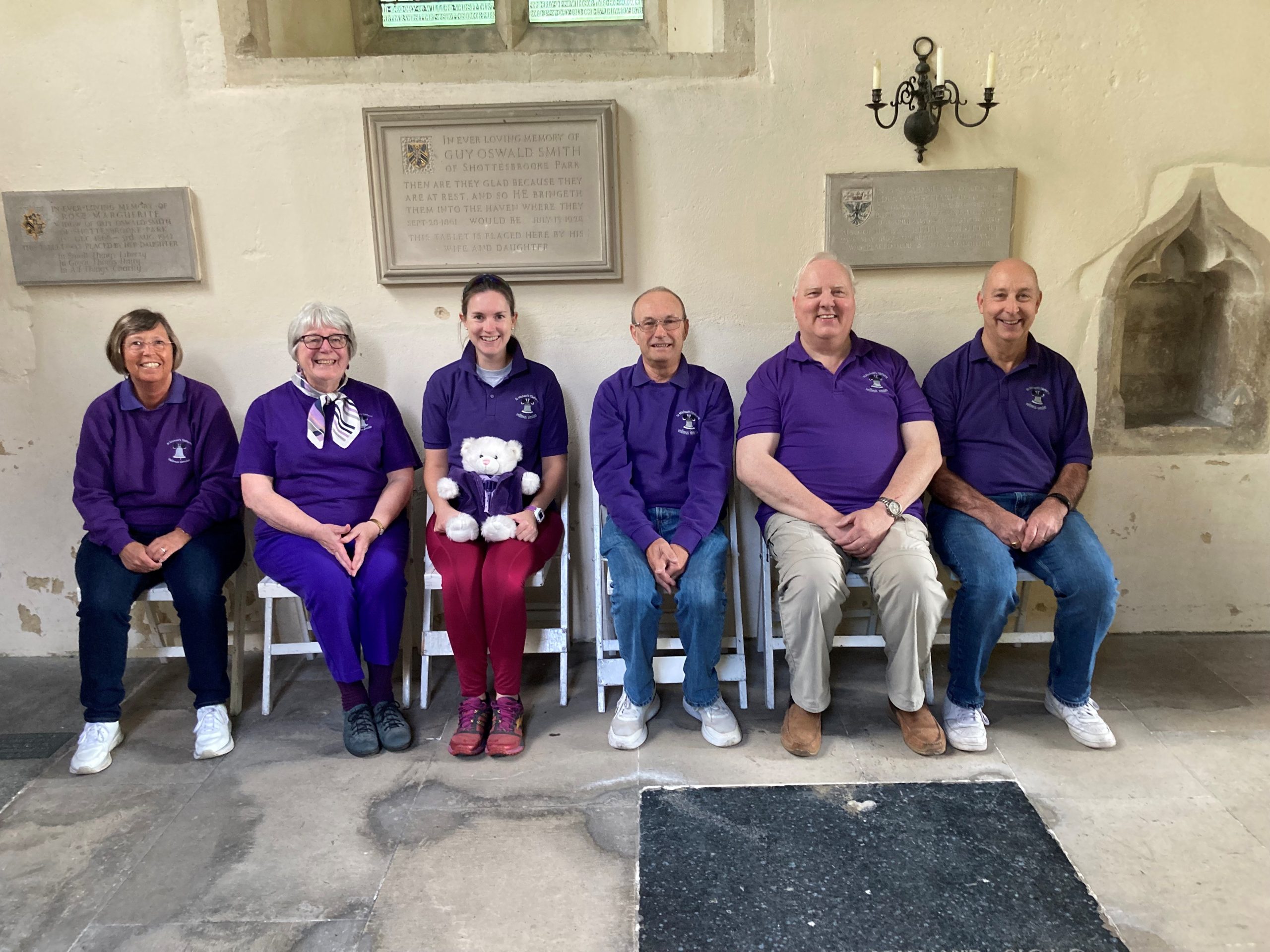
- Six bell striking competition final runners-up, High Wycombe (L to R, treble to tenor): Sheila Bruce, Patricia M. Newton, Verity Nicholls, John E. Hearn, Robert H. Newton (C), George T. Pickwell
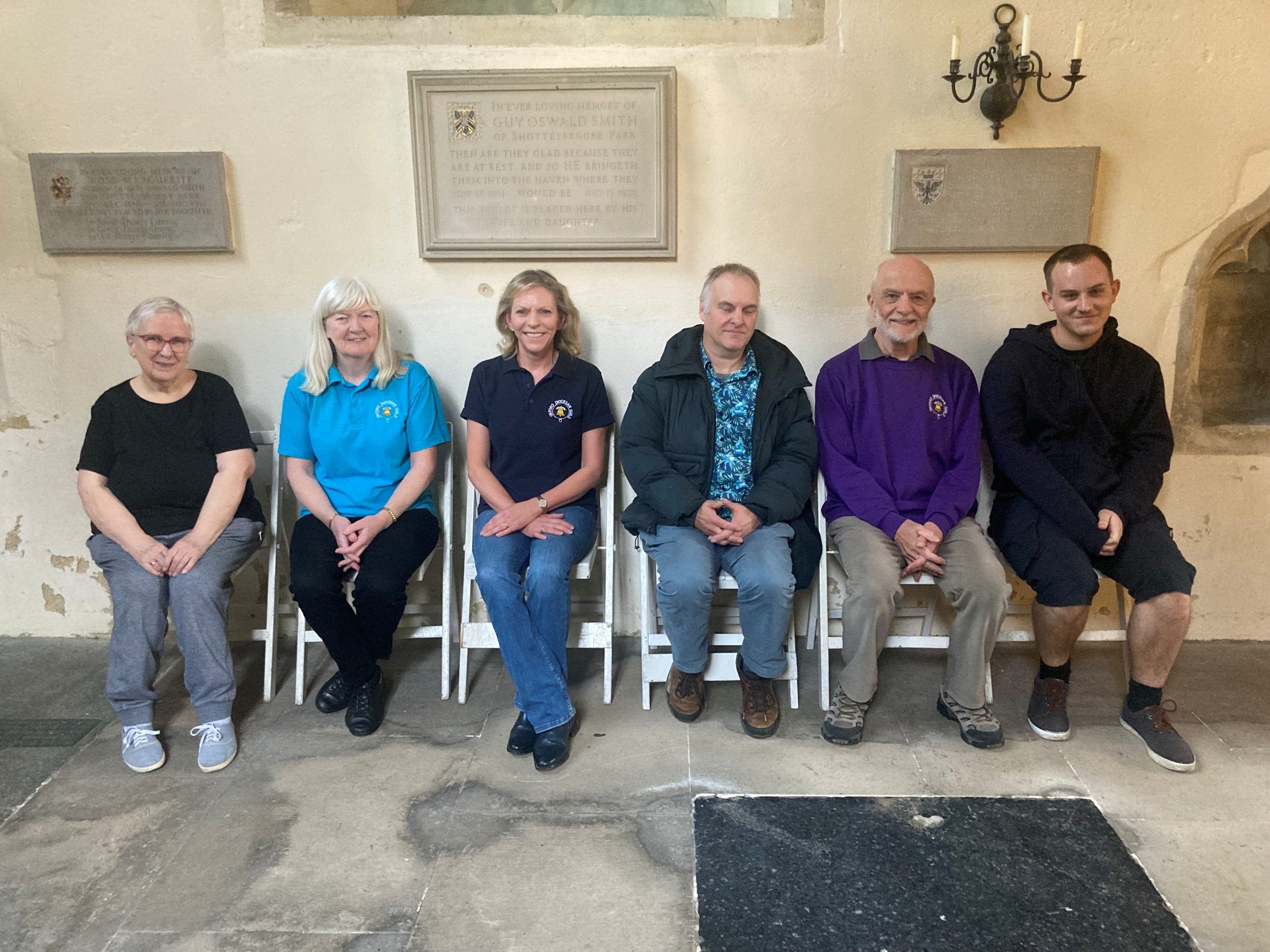
- Six Bell striking competition final third place and Raising and Lowering competition winners, Hook Norton (L to R, treble to tenor), Selina Harris, Sally Austin, Keith Abbots, Jonathan Muller, Daniel Austin, Mick Austin (C )
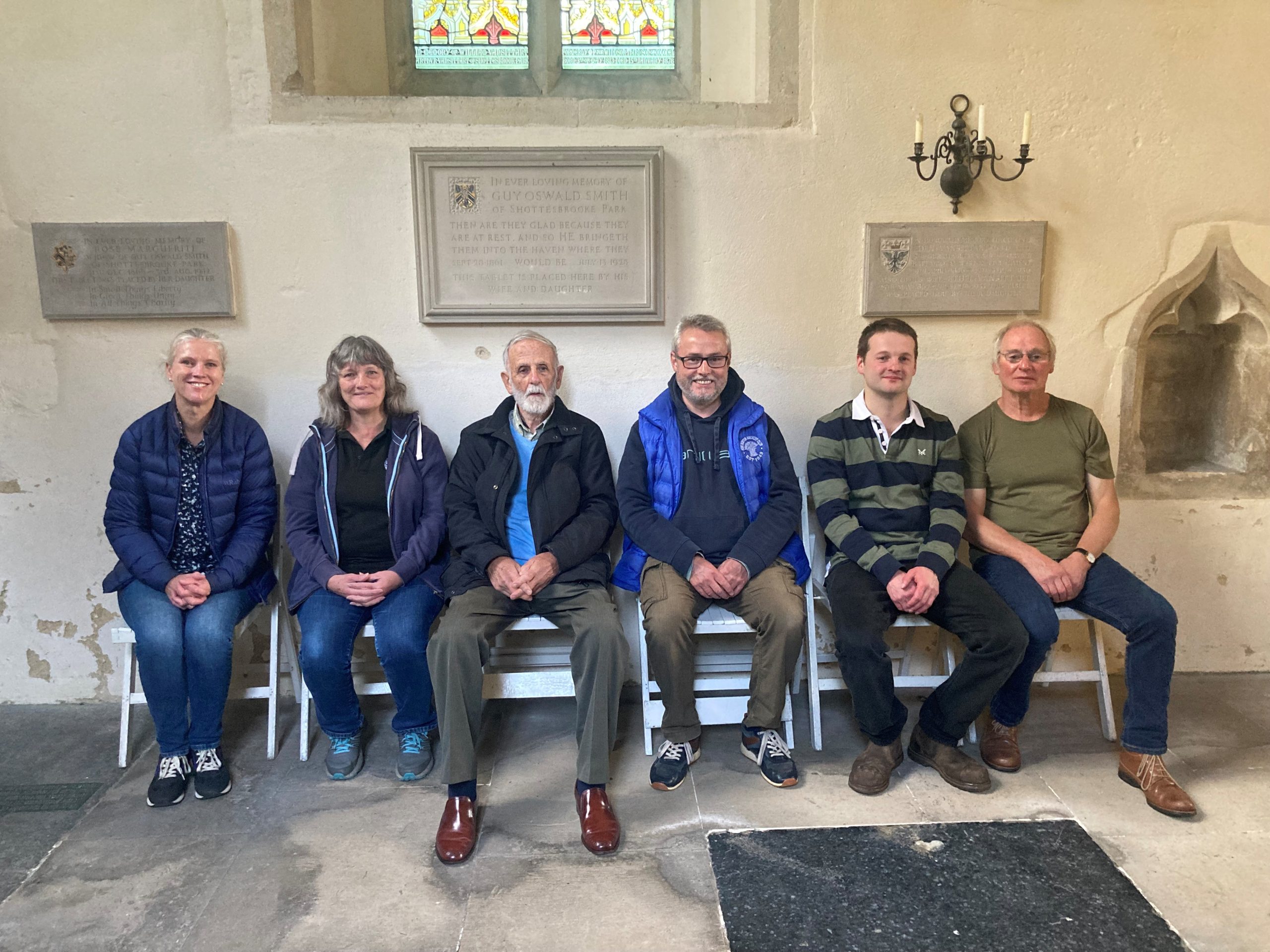
ODG 6 Bell Raising and Lowering Competition 2023
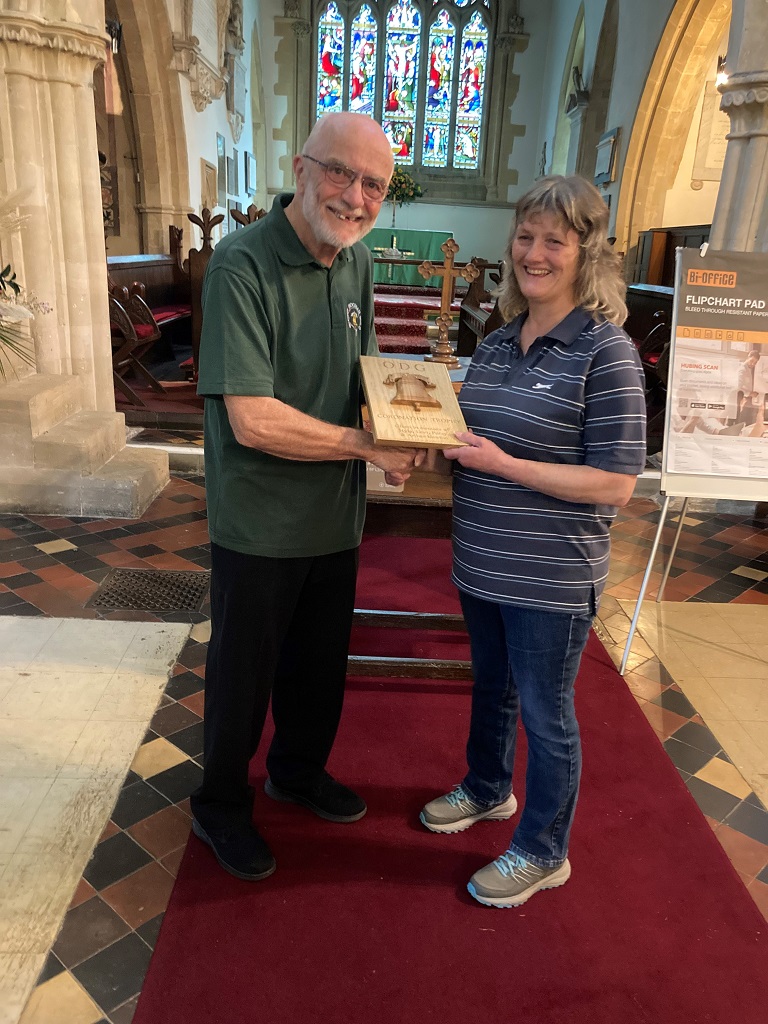
Robert Newton presenting the Coronation Trophy 2023 to Hook Norton.
Three teams rang at Wigginton (6-1-17) in the inaugural competition for the new Coronation Trophy. Sadly a number of other teams had to pull out of the competition at late notice due to illness and injury. The trophy has been endowed by Robert Newton in memory of his father, grandfather and two uncles, all of whom were Devon ringers for whom raising and lowering was never the starter and pudding but often the main course. The hope – explained Robert – was that this competition could be open and fun with an enjoyable, have-a-go atmosphere.
The competition was won by Hook Norton with 82%. They achieved a speedy rise with a little bunching, but – despite a mercifully brief power cut in the ringing chamber - a smooth lower with a very good transition from double to single clappering.
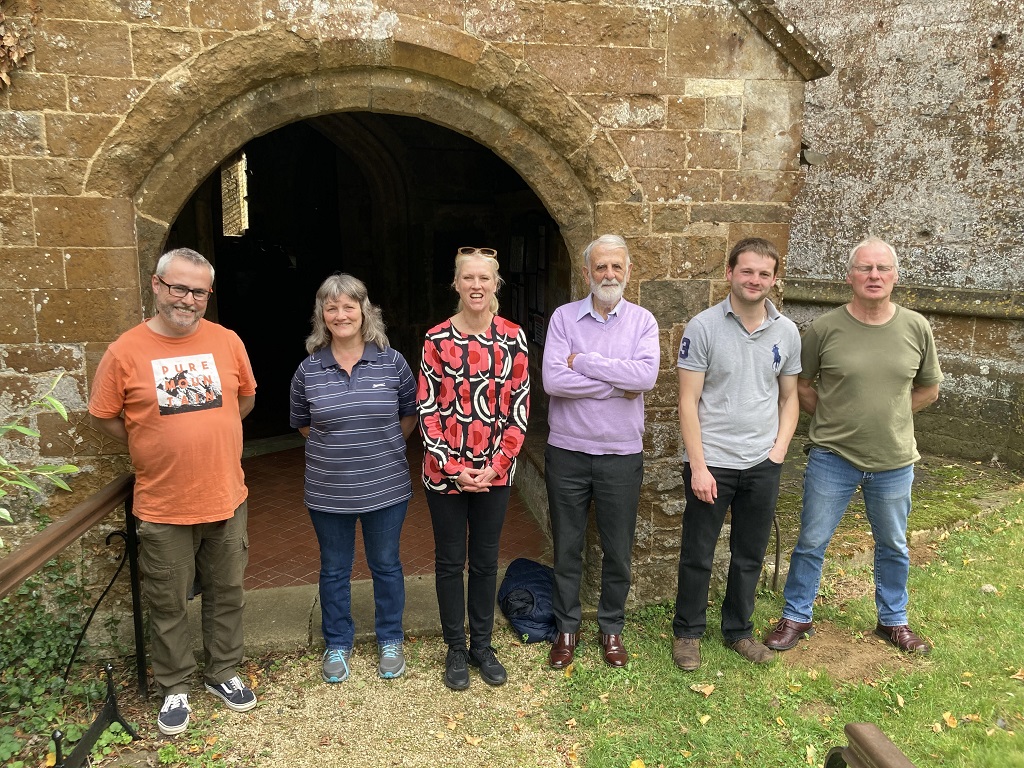
Hook Norton - Winners 2023
In a close second place came the Youth Band with 77%. Despite an uneven start to the raise, the team’s lower excelled despite some bunching episodes interspersed with very smooth passages. Their transition was slower with a not-quite-even catch at the end.
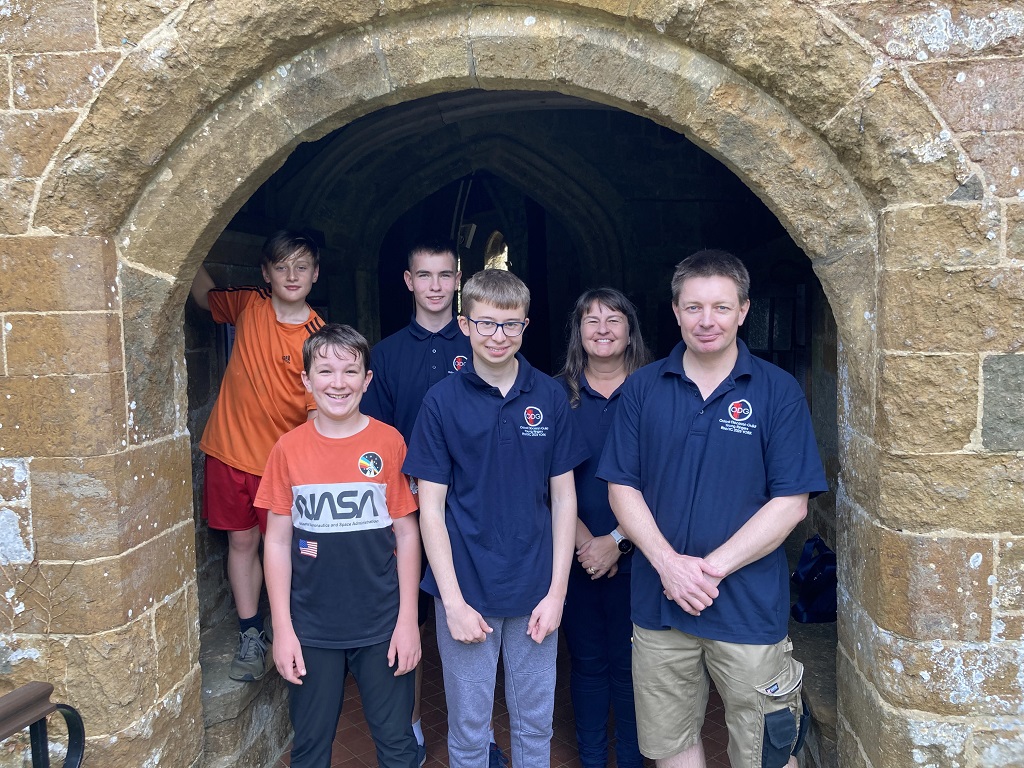
ODG Youth Band
In third place came Newbury with 61%. They suffered a partly muddled raise and their lower was the slowest of the three – possibly too slow for comfort – and after the catch one bell chimed a further time.
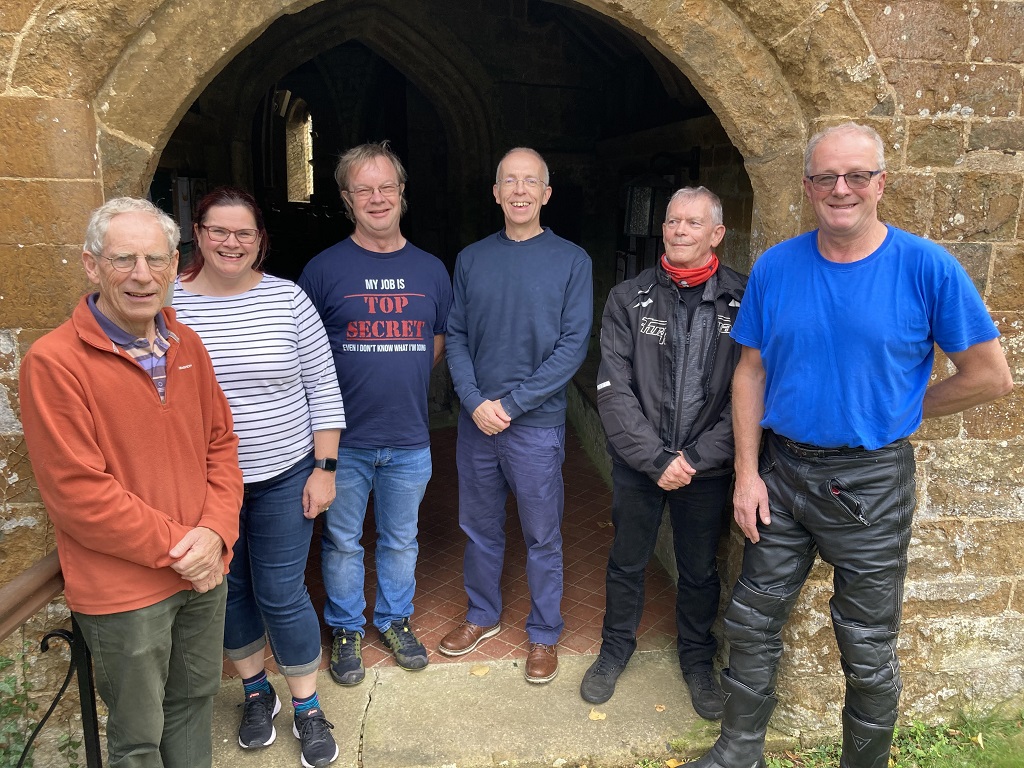
Newbury
Thank you to Robert Newton, not only for judging the competition but also for offering general advice on raising and lowering, which he admitted could sometimes be an afterthought even for top peal bands. He reminded us that raising is the first performance to be heard by the congregation on a Sunday and lowering is the last, and neither is always done well. His tips included: get the front bells up quickly to allow space for the back bells to come in and chime; and don’t forget that in many respects it is the tenor that leads up, as the other bells can only go at the speed of the heaviest. The finest judgement is in sensing when to spread out the bells so that the sound evenly both on the approach and at the top.
Robert’s tips for lowering included a warning not to take the first coil too soon out of nervousness, as this can result in jerking a bell downwards too quickly; to keep the ‘untidy’ patch when double clappering becomes single short (‘Get the bells down!’) and to make sure that the back bells hardly swing at all at the end. Two extra recommendations were to read John Harrison’s booklet on raising and lowering (still available at £2.50); and to listen to the ART Raising and Lowering DVD which includes an exceptional lower on 8 at Kingsteignton.
Finally, Robert explained how he had approached marking. Although all rows were marked, overall impression counted for a lot. Marks were divided equally between the raise and the lower with just a few marks allocated to the start and finish of each.
Thank you to the Chipping Norton branch for hosting and especially to Sue Checkley and Geoffrey Stretton, who opened up, helped steward, kept track of the bands and understood how the electricity supply at Wigginton works!
Elizabeth Mullett, Steward